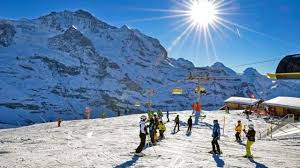telephones for hearing impaired(part two)
Catagory: History
Author:Nella Braddy Henney
Posted Date:03/03/2025
Posted By:utopia online
is, what time the train leaves for Wakefield, or what kind of connection can be made at Jones's Junction.
In calling a number the name of the exchange should be given first. The number itself should be called with a slight pause between the hundreds and the tens, thus, “Watkins—pause—five, nine—pause—hundred” for “Watkins 5900” or “Murray Hill—pause—four, two—pause—six, three” for “Murray Hill 4263.” The reason for this is that the switchboard before which the operator sits is honeycombed with tiny holes arranged in sections of one hundred each. Each section is numbered and each of the holes within it is the termination of a subscriber's line. In locating “Watkins 5900” the girl first finds the section labelled “59 and then the “00” hole in that section, and if the “59” is given first she has found it by the time the subscriber has finished calling the number.
The number should be pronounced slowly and distinctly.
When the operator repeats it the subscriber should acknowledge it, and if she repeats it incorrectly, should stop her and give her the number again. And he should always remember, however difficult it may be to make her understand, that he is talking to a girl, a human being, and that the chances are ten to one that the poor connection is not her fault.
To recall the operator in case the wrong person is connected it is only necessary to move the receiver hook slowly up and down. She may not be able to attend to the recall at once but jiggling the hook angrily up and down will not get her any sooner. In fact, the more furious the subscriber becomes the less the girl knows about it, for the tiny signal light fails to register except when the hook is moved slowly; or if the switchboard is one where the operator is signalled by a little disk which falls over a blank space the disk fails to move down but remains quivering almost imperceptibly in its usual position.
After he has placed a call a man should wait at the telephone or near it until the connection is made. Too many men have a way of giving their secretaries a number to send through and then wandering off somewhere out of sight so that when the person is finally connected he has to wait several minutes while the secretary locates the man who started the call. It is the acme of discourtesy to keep any one waiting in this manner. It implies that your time is much more valuable than his, which may be true, but it is hardly gracious to shout it in so brazen a fashion.
It has been estimated that in New York City alone, more than a full business year is lost over the telephone every day between sunrise and sunset. There are 3,800,000 completed connections made every day. Out of each hundred, six show a delay of a minute or more before the person called answers. In each day this amounts to a delay of 228,000 connections. Two hundred and twenty-eight thousand minutes (and sometimes the delay amounts to much more than a minute) is the equivalent of 475 days of eight hours each, or as the gentleman who compiled these interesting statistics has it, a business year and a third with all the Sundays and holidays intact. In the course of a year it amounts to more than all the business days that have elapsed since Columbus discovered America!
It may be argued that we would be better off if we lost more than a year every day and did all our work at more leisurely pace. This may be, but the time to rest is not when the telephone bell is ringing.
The telephone on a business man's desk should always be facing him and it should not be tricked out with any of the patent devices except those sanctioned by the company. Most of them lessen instead of increase efficiency. A woman in her home where calls are infrequent may hide her telephone behind a lacquered screen or cover it with pink taffeta ruffles, but in a business office it is best to make no attempts to beautify it. It is when it is unadorned that the ugly little instrument gives its best service.
There should always be a pad and pencil at hand so that the message (if there is one) can be taken down without delay. The person at the other end probably has not time (and certainly has not inclination) to wait until you have fumbled through the papers on your desk and the rubbish in the drawers to locate something to write on and something to write with.
“Hello” is a useless and obsolescent form of response in business offices. The name of the[Pg 121] firm, of the department, or of the man himself, or of all three, according to circumstances, should be given. When there is a private operator to take care of the calls she answers with the name of the firm, Blank and Blank. If the person at the other end of the wire says, “I want the Advertising department,” she connects them and the man there answers with “Advertising department.” The other then may ask for the manager, in which case the manager answers with his name. It is easy to grow impatient under all these relays, but a complicated connection involving half a dozen people before the right one is reached can be accomplished in less than a minute if each person sends it straight through without stopping to exchange a number of “Helloes” like a group of Swiss yodelers, or to ask a lot of unnecessary questions.
It is not necessary to scream over the telephone. The mouth should be held close to the transmitter and the words should be spoken carefully. In an open office where there are no partitions between the desks one should take especial pains to keep his voice modulated. One person angrily spluttering over the telephone can paralyze the work of all the people within a radius of fifty feet. If it were a necessary evil we could make ourselves grow accustomed to[Pg 122] it. But it is not. And there is already enough unavoidable wear and tear during the course of a business day without adding this.
“Hello, what do you want?” is no way to answer a call. No decent person would speak even to a beggar at his door in this way and the visitor over the telephone, whoever he is, is entitled to a cordial greeting. The voice with the smile wins.
An amusing story is told of a man in Washington who was waked one evening about eleven o'clock by the telephone bell. At first he swore that he would not answer it but his wife insisted that it might be something very important, and finally, outraged and angry, he blundered through the dark across the room and into the hall, jerked down the receiver and yelled, “Hello!” His wife, who was listening tensely for whatever ill news might be forthcoming, was perfectly amazed to hear him saying in the next breath, in the most dulcet tones he had ever used, “Oh, how do you do, I'm so glad you called. Oh, delightful. Charmed. I'm sure she will be, too. Thank you. Yes, indeed. So good of you. Good-bye.” It was the wife of the President of the United States asking him and his wife to dinner at the White House.
If the person calling is given the wrong de[Pg 123]partment he should be courteously transferred to the right one. Courteously, and not with a brusque, “You've got the wrong party” or “I'm not the man you want” but with “Just a minute, please, and I'll give you Mr. Miller.”
The time when people are rudest over the telephone is when some one breaks in on the wire. It might be just as well to remember that people do not interrupt intentionally, and the intruder is probably as disconcerted as the man he has interrupted. If he had inadvertently opened the wrong door in a business office the man inside would not have yelled, “Get out of here,” but over the telephone he will shriek, “Get off the wire” in a tone he would hardly use to drive the cow out of a cabbage patch.
In an effort to secure better manners among their subscribers the telephone company has asked them to try to visualize the person at the other end of the wire and to imagine that they are talking face to face. Many times a man will say things over the telephone—rude, profane, angry, insulting things, which he would not dream of saying if he were actually before the man he is talking to. And to make it worse he is often so angry that he does not give the other a chance to explain his side of it, at least not until he has said all that he has to say, and even then[ he not infrequently slams the receiver down on the hook as soon as he has finished!
Listening on a wire passes over from the field of courtesy into that of ethics. On party lines in the country it is not considered a heinous offense to eavesdrop over the telephone, but the conversation there is for the most part harmless neighborhood gossip and it does not matter greatly who hears it. In business it is different. But it is practically impossible for any one except the operator to overhear a conversation except by accident, and it is a misdemeanor punishable by law for her to give a message to any one other than the person for whom it was intended.
In every office there should be a large enough mechanical equipment manned by an efficient staff to take care of the telephone traffic without delay. “The line is busy” given in answer to a call three or four times will send the person who is calling to some other place to have his wants looked after.
Few places appreciate the tremendous volume of business that comes in by way of telephone or the possibilities which it offers to increase business opportunities. They are as short-sighted as the department store which, a good many years ago, when telephones were new, had them in[Pg 125]stalled but took them out after a few weeks because the clerks were kept so busy taking orders over them that they did not have time to attend to the customers who came into the store!
Another important vantage point which, like the telephone, suffers from neglect is the reception desk. Millions of dollars' worth of business is lost every year and perfect sandstorms and cyclones of animosity are generated because business men have not yet learned the great value of having the right kind of person to receive visitors. To the strangers who come—and among the idlers and swindlers and beggars who assail every successful business house are potential good friends and customers—this person represents the firm,—is, for the time being, the firm itself.
It is very childish for a man to turn away from a reception desk because he does not like the manner of the person behind it, but business men, sensible ones at that, do it every day. Pleasant connections of years' standing are sometimes broken off and valuable business propositions are carried to rival concerns because of indifferent or insolent treatment at the front door. Only a short time ago an advertising agency lost a contract for which it had been working two years on account of the way the girl at the door received the man[Pg 126] who came to place it. He dropped in without previous appointment and was met by a blonde young lady with highly tinted cheeks who tilted herself forward on the heels of her French pumps and pertly inquired what he wanted. He told her. “Mr. Hunt isn't in.” “When will he be back?” “I don't know,” and she swung around on the impossible heels. The man deliberated a moment and then swung around on his heels (which were very flat and sensible) and carried the contract to another agency. Instances of this kind might be multiplied. Some business men would have persisted until they got what they wanted from the young lady. Others would have angrily reported her to the head of her office, but the majority would have acted as this man did.
Most men (and women), whether they are in business or not, do not underestimate their own importance and they like to feel that the rest of the world does not either. They do not like to be kept waiting; they like to be received with a nice deference, not haughtily; they do not like to be sent to the wrong department; and they love (and so do we all) talking to important people. Realizing this, banks and trust companies and other big organizations have had to appoint nearly as many vice-presidents as there were[Pg 127] second-lieutenants during the war to take care of their self-important visitors. Even those whose time is not worth ten cents (a number of them are women) like to be treated as if it were worth a great deal. It is, for the most part, an innocent desire which does no one any special harm, and any business that sets out to serve the public (and there is no other kind) has to take into account all the caprices of human vanity. We cannot get away from it. Benjamin Franklin placed humility among the virtues he wished to cultivate, but after a time declared it impossible. “For,” he said, “if I overcame pride I would be proud of my humility.”
Courtesy is the first requirement of the business host or hostess and after that, intelligence. Some business houses make the mistake of putting back of the reception desk a girl who has proved herself too dull-witted to serve anywhere else. The smiling idiot with which this country (and others) so abounds may be harmless and even useful if she is kept busy behind the lines, but, placed out where she is a buffer between the house and the outside world, she is a positive affliction. She may be pleasant enough, but the caller who comes for information and can get nothing but a smile will go away feeling about as cheerful as if he had stuck his hand into a jar of[Pg 128] honey when he was a mile or so away from soap, water, and towel.
A litter of office boys sprawling untidily over the desks and chairs in the reception room is as bad, and a snappy young lady of the “Now see here, kid” variety is worse.
The position is not an easy one, especially in places where there is a constant influx of miscellaneous callers, and it is hardly fair to ask a young girl to fill it. In England they use elderly men and in a number of offices over here, too. Their age and manner automatically protect them (and incidentally their firms) from many undesirables that a boy or girl in the same position would have considerable difficulty in handling. And they lend the place an air of dignity and reserve quite impossible with a youngster.
In some offices, especially in those where large amounts of money are stored or handled, there are door men in uniform and often plain clothes huskies near the entrances to protect the people (and the money) on the inside from cranks and crooks and criminals. In others, a physician's office, for instance, or any small office where the people who are likely to come are of the gentler sort, a young girl with a pleasing manner will do just as well as and perhaps better than any one else. In big companies where there are many de[Pg 129]partments, it is customary to maintain a regular bureau of information to which the caller who is not sure whom or what he wants is first directed, but the majority of businesses have only one person who is delegated to receive the people who come and either direct them to the person they want to see or turn them aside.
Most of them must be turned aside. If the stage managers in New York interviewed all the girls who want to see them, they would have no time left for anything else, and the same thing is true of nearly every man who is prominent in business or in some other way. (Charlie Chaplin received 73,000 letters during the first three days he was in England. Suppose he had personally read each of them!) Hundreds of people must be turned away, but every person who approaches a firm either to get something from it or to give something to it has a right to attention. Men are in business to work, not to entertain, and they must protect themselves. But the people who are turned away must be turned away courteously, and the business house which has found some one who can do it has cause to rise and give thanks.


.jpg)














 👁 :46
👁 :46
 👁 :28
👁 :28
 👁 :50
👁 :50
 👁 :102
👁 :102
 👁 :43
👁 :43
 👁 :33
👁 :33
 👁 :52
👁 :52
 👁 :5
👁 :5